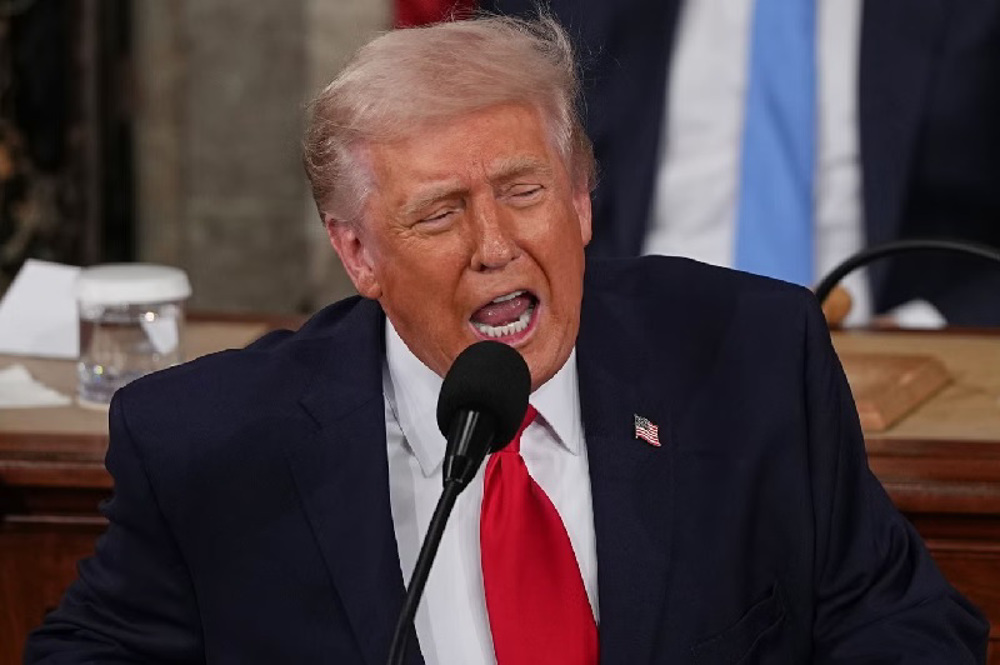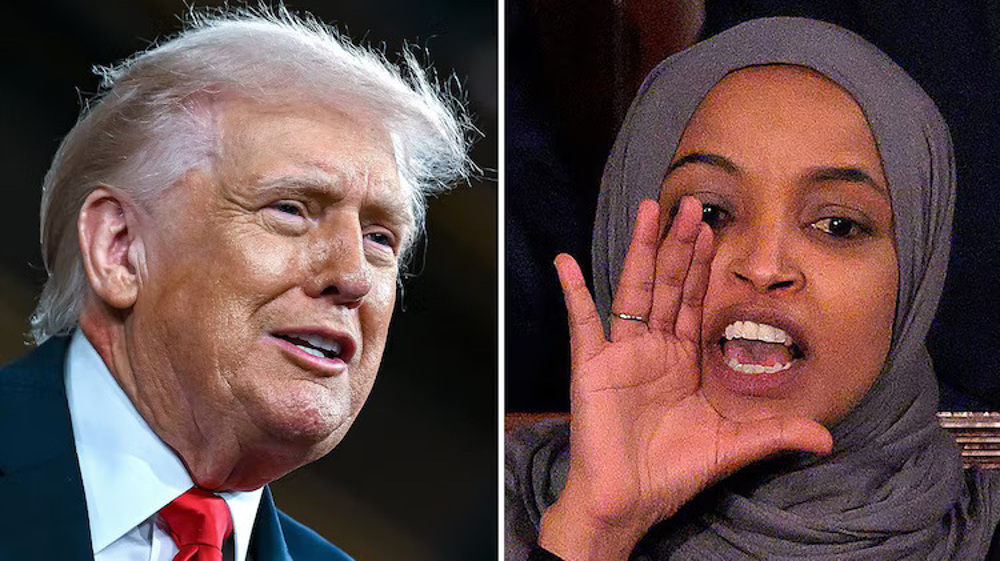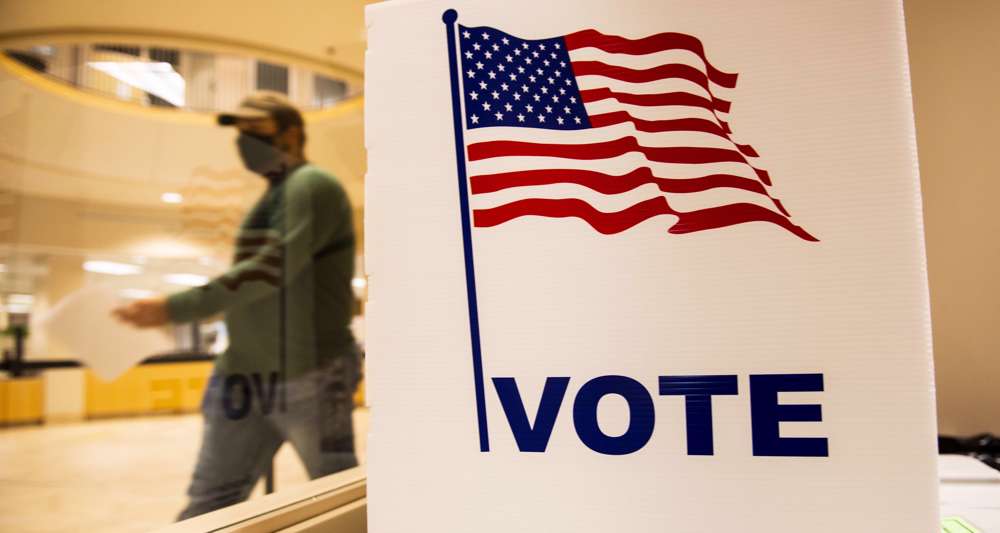Death of US Supreme Court judge raises stakes in race to control Senate
A fierce political battle has shaped up in the US over the future of the country’s Supreme Court following the death of liberal Justice Ruth Bader Ginsburg with far-right President Donald Trump declaring that he would quickly nominate a successor in his bid to tip the high court further to right.
The Saturday development also raised the stakes in the election race between the nation’s two dominant political parties to grab control of the US Senate, forcing ruling Republican incumbents to choose between appealing to moderate voters or the party’s traditional right-wing base.
Ginsburg’s death on Friday from cancer after serving 27 years -- as the first woman on the high court -- gave Trump, who is seeking re-election on November 3, a chance to expand its conservative majority to 6-3 at a time of a deepening political divide in the US.
“We were put in this position of power and importance to make decisions for the people who so proudly elected us, the most important of which has long been considered to be the selection of United States Supreme Court Justices,” Trump declared in a Twitter post on Saturday. “We have this obligation, without delay!”
Any nomination would require approval in the Senate, where Trump’s Republicans hold a 53-47 majority.
This is while Republican Senate Majority Leader Mitch McConnell has also promised a vote in a bid to cement the court’s conservative majority while the party controls both the White House and the Senate.
With the court vacancy coming so close to the upcoming presidential and congressional elections, Democrats argue that the voters should weigh in before Trump and McConnell rush to fill the seat -- the very argument McConnell employed in 2016 to block a Supreme Court nominee of then Democratic President Barack Obama.
Democrats are still seething over the Republican Senate’s refusal to act on Obama’s Supreme Court nominee, Merrick Garland, in the presidential election year after conservative Justice Antonin Scalia died 10 months before Election Day. McConnell insisted at the time that the Senate should not act on a court nominee during an election year, a position he has since reversed.
Obama himself urged Senate Republicans on Saturday to honor what he called that “invented” 2016 principle.
“A basic principle of the law — and of everyday fairness — is that we apply rules with consistency, and not based on what’s convenient or advantageous in the moment,” Obama emphasized in a statement posted online.
Even if Democrats win the White House and a Senate majority in the next election, Trump and McConnell have time as the full new Congress would not be sworn in until January 3, 2021.
“There are those people who have a hypocrisy meter and it just offends them,” said director of the University of Virginia’s Center for Politics, Larry Sabato, as quoted in a Reuters report, referring to Republicans’ changing strategies.
Considering that they have few tools to block the Senate approval of Trump’s court nominee, Democrats plan to try to rally public opposition to the move.
Meanwhile, national polls indicate Democratic presidential nominee Joe Biden leading Trump ahead of the November election, further showing that Democrats have a chance of unseating enough Republican senators to capture a majority in the key chamber.
This is while several incumbent Republican senators face the choice of backing Trump’s eventual court nominee and potentially losing some moderate voters, or rejecting the nominee and angering the conservative base.
About seven Republican incumbents and two Democrats face a chance of losing their seats in the November poll, according to nonpartisan election trackers cited in a Reuters report.
The report further cited a senior Senate Republican -- who asked not to be identified – as saying on Saturday that the prospect of solidifying a conservative Supreme Court was so enticing that Republican senators might be willing to lose their majority to accomplish it amid potential voter backlash.
Democrats would need a net gain of three seats for a majority if Biden unseats Trump, meaning a Vice President Kamala Harris would be on hand to break 50-50 ties in the Senate.
Moreover, Republicans also risk the possibility of liberals embracing more radical proposals should Trump replace Ginsburg but Democrats win the November election, with some activists on the left suggesting even before Ginsburg’s death that the number of justices on the court should be expanded to counter Trump’s appointees.
“Let me be clear: if Leader McConnell and Senate Republicans move forward with this, then nothing is off the table for next year,” Senate Minority Leader Chuck Schumer told fellow Democrats on a Saturday conference call, according to a source – cited by Reuters -- who listened to the call.
House of Representatives Judiciary Committee Chairman Jerrold Nadler further insisted on Saturday that rushing a court pick through the Senate if Democrats win in November would be “undemocratic.”
Doing so would mean “Congress would have to act and expanding the court would be the right place to start,” he added in a Twitter post.
The two Supreme Court justices already appointed by Trump were Neil Gorsuch in 2017 and Brett Kavanaugh in 2018. Kavanaugh’s confirmation process was particularly heated, as he faced accusations by a California university professor that he had sexually assaulted her in 1982 when the two were high school students in Maryland.
Israeli army chief privately warns of cost of new war with Iran: Report
IRGC official: US buildup, psychological tactics aim to 'swallow Iran again'
Iran’s three-man team captures triple gold at UWW ranking series in Tirana
Iranian academic sentenced to 4 years in prison in France for supporting Palestine
VIDEO | Press TV's news headlines
Russia: West seeks to repeat past ‘plunder’ of Iran’s oil
Herzog visits Ethiopia to expand Israeli footprint in Africa
VIDEO | Sunni family's legacy of sacrifice inspires unity, solidarity in Iran
















 This makes it easy to access the Press TV website
This makes it easy to access the Press TV website